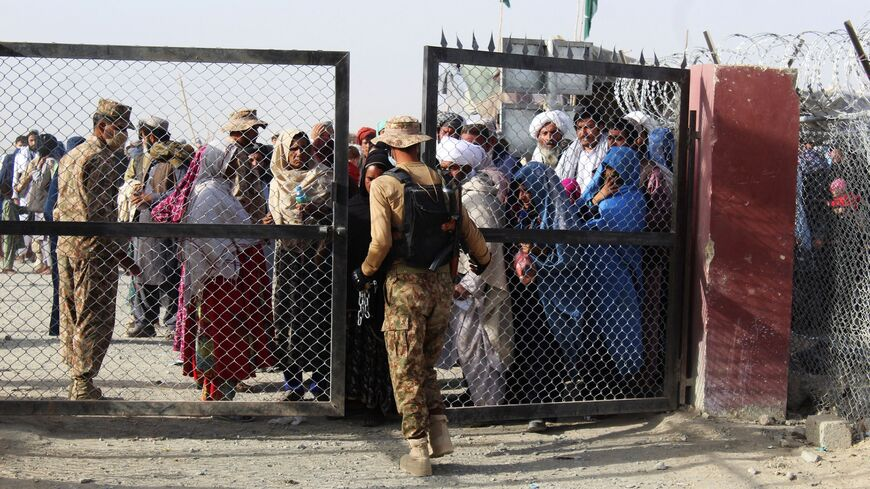
Turkey’s president told German President Steinmeier that the EU member states should provide swift assistance to Afghanistan’s neighbors to cope with irregular migration.
Turkish President Recep Tayyip Erdogan renewed a call to the European Union to help Afghanistan’s neighbors cope with the Afghan refugee influx, warning against reliving the 2015 Syrian refugee wave.
Tens of thousands of displaced Syrians first crossed into neighboring countries in 2015 and then sought to get into more prosperous European countries. Ankara and Brussels then agreed on the 2016 Turkey-EU statement, a complex and fragile accord under which the EU set up the billion-euro Facility for Refugees in Turkey to help Ankara stop irregular migration to the EU. The deal also included vaguely worded promises to upgrade the Turco-EU customs union, liberalize visas for Turkish citizens and revive the accession negotiations.
In a phone call to German President Frank-Walter Steinmeier Tuesday, Erdogan repeated that Turkey does not have the capacity to deal with a new migration burden, a statement from the Presidency Communication Directorate said.
“The president pointed out that Turkey and Germany, two NATO allies, has shown exemplary cooperation and coordination during the evacuation from Afghanistan, and expressed hope that this would continue during the critical period that Afghanistan is traversing,” read the statement.
Facing anti-immigration backlash at home, Erdogan has been in contact with European leaders from German Chancellor Angela Merkel to EU Council President Charles Michel to prevent irregular migration from Afghanistan and provide help to the displaced Afghans in the “neighboring countries” of Pakistan, Uzbekistan and Iran.
Erdogan also urged Steinmeier to “take rapid action” on the unfulfilled elements of the 2016 accord, such as an update of the Turco-EU customs union, visa liberalization for Turks and revived accession talks. Given the largely ceremonial role of the German president, these last points in particular sound more like political posturing than an actual request for action.
Foreign Minister Mevlut Cavusoglu echoed the same line on Afghanistan at a high-level UN ministerial meeting on the Afghan humanitarian situation Monday. Underlining the need for “urgent global action” for an effective response to the security and humanitarian crisis in Afghanistan, Cavusoglu pointed out that nearly half of the population is in need of urgent humanitarian aid and a third of the Afghan people face hunger.
The foreign minister told Turkey’s NTV last week that the best way to solve the Afghan migrant crisis was to solve the conflict domestically to ensure that people are not forced to leave their homes.
“It is also crucial to provide assistance to neighboring countries like Pakistan, Uzbekistan and Iran,” he said. “There is not considerable movement now [toward Turkey] but we need to be prepared” for future scenarios.
The EU “joins Turkey” in its aim to support the countries neighboring Afghanistan to provide asylum for Afghan refugees, Nikolaus Meyer-Landrut, the head of the EU Delegation to Turkey, assured Monday from Turkish-Iran border city of Van, a major human trafficking route to Europe.
“The European Union has announced that it will increase by four times its humanitarian assistance to Afghanistan by the end of 2021, bringing it to more than 200 million euros [$236 million],” Meyer-Landrut, a German diplomat who served as the chief adviser for European affairs to Chancellor Angela Merkel between 2011 and 2015, told Daily Sabah. “We share the analysis of Foreign Minister Cavusoglu that it is now critical to bring assistance to the people of Afghanistan as quickly as possible.”
Turkey, which already hosts 3.7 million Syrians, is concerned about a potential influx of refugees fleeing the Taliban. Ankara say there are 182,000 registered Afghan migrants in Turkey and up to an estimated 120,000 unregistered ones.
